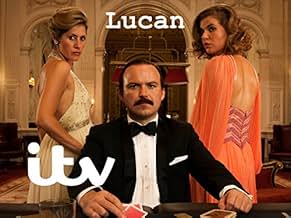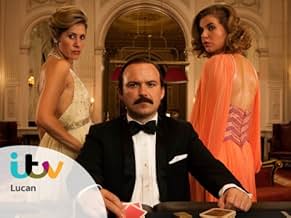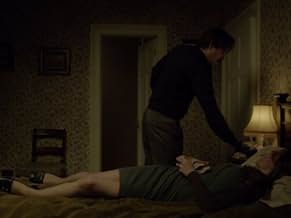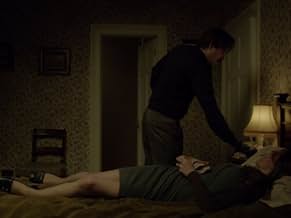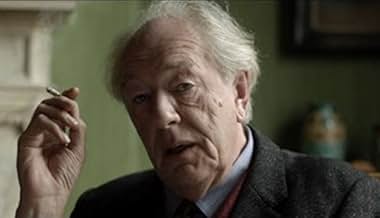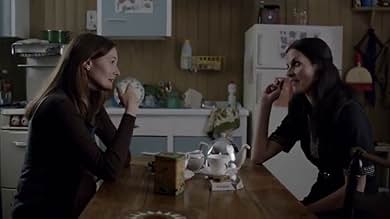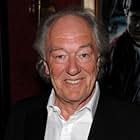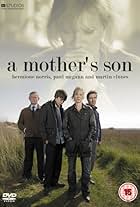A two-part drama about infamous aristocrat John Bingham, 7th Earl of Lucan, who mysteriously disappeared in 1974 after being accused of murdering his children's nanny.A two-part drama about infamous aristocrat John Bingham, 7th Earl of Lucan, who mysteriously disappeared in 1974 after being accused of murdering his children's nanny.A two-part drama about infamous aristocrat John Bingham, 7th Earl of Lucan, who mysteriously disappeared in 1974 after being accused of murdering his children's nanny.
Browse episodes
Storyline
Did you know
- TriviaJohn Pearson (Paul Freeman), on whose book this is based, was a biographer who had been an assistant to Ian Fleming and later wrote a biography of him and a fictional one of James Bond. Though he wrote books about the notorious gangsters, the Kray twins, most of his biographies were about nobles, the rich and the famous.
- Quotes
DCI David Gerring: Are you proud to be the friend of a man who tried to bash his wife to death?
John Aspinall: If she'd been *my* wife, I'd have bashed her to death five years ago - and so would you.
Featured review
I was around 13 when the story of the disappearance of suspected, later convicted, murderer Lord Lucan broke and have quite strong memories of the publicity of the day. Indeed in a "Where's Wally" kind of way, he became almost a figure of fun, as he escaped detection then as now, despite many false trails and red herrings ever since.
Therefore, although criticised by representatives of both viewpoints, for and against the Lord, for its interpretation of the events of the night of the family nanny Sandra Rivets' brutal murder and the subsequent events, at least this two-part TV drama doesn't sit on the fence on the question of Lucan's culpability. As presented here, we get a mostly plausible sequence of events, including the startling but questionable conclusion that Lucan's society friends had him killed off before he could return to defend himself and attempt to fight for the custody of his children.
The drama goes into details on the events leading up to the night of the murder highlighting Lucan's relationship with his upper-class, snobbish society friends, with it his addiction to gambling (hence his ironic nickname "Lucky" Lucan) and the breakdown of his marriage. He's presented as a weak-minded, out-of-control gambler, a mother's boy and eventually a ruthless husband, shamefully trying to have his long-suffering but still sane wife committed to a psychiatric hospital against her wishes.
I found the first part of the drama leading up to the murder more gripping than the aftermath conveyed in part two, perhaps instinctively due to the latter's lack of conviction as to how events supposedly turned out. I also didn't really like the "Citizen Kane" device of framing the story with a writer's retrospective investigation, recreating imaginary present-day interviews with key characters recollecting the past events.
The acting I found of a mixed quality too. Rory Kinnear for one thing doesn't seem tall enough in the part and fails to convince he's a bored aristocrat while you can hear Christopher Ecclestone put on his posh accent every time he speaks as Lucan's so-called friend and adviser John "Aspers" Aspinall.
Nevertheless the programme did work for me as a study of the idle rich with all their inherent class snobbery and blind loyalty to one another, but in concentrating on the Lucans and their rich in-crowd, it could be said to have been denigrating to the memory of the lowly commoner who was unlucky enough to fall into their orbit, although it tries to exonerate itself on that score with a brief scene giving the dead girl's parents the right of reply.
The Lucan mystery may never be solved and while I didn't fully believe this reconstruction of what happened after his disappearance, it is undeniably a story worth telling, particularly in the commendably sober and straightforward manner as here.
Therefore, although criticised by representatives of both viewpoints, for and against the Lord, for its interpretation of the events of the night of the family nanny Sandra Rivets' brutal murder and the subsequent events, at least this two-part TV drama doesn't sit on the fence on the question of Lucan's culpability. As presented here, we get a mostly plausible sequence of events, including the startling but questionable conclusion that Lucan's society friends had him killed off before he could return to defend himself and attempt to fight for the custody of his children.
The drama goes into details on the events leading up to the night of the murder highlighting Lucan's relationship with his upper-class, snobbish society friends, with it his addiction to gambling (hence his ironic nickname "Lucky" Lucan) and the breakdown of his marriage. He's presented as a weak-minded, out-of-control gambler, a mother's boy and eventually a ruthless husband, shamefully trying to have his long-suffering but still sane wife committed to a psychiatric hospital against her wishes.
I found the first part of the drama leading up to the murder more gripping than the aftermath conveyed in part two, perhaps instinctively due to the latter's lack of conviction as to how events supposedly turned out. I also didn't really like the "Citizen Kane" device of framing the story with a writer's retrospective investigation, recreating imaginary present-day interviews with key characters recollecting the past events.
The acting I found of a mixed quality too. Rory Kinnear for one thing doesn't seem tall enough in the part and fails to convince he's a bored aristocrat while you can hear Christopher Ecclestone put on his posh accent every time he speaks as Lucan's so-called friend and adviser John "Aspers" Aspinall.
Nevertheless the programme did work for me as a study of the idle rich with all their inherent class snobbery and blind loyalty to one another, but in concentrating on the Lucans and their rich in-crowd, it could be said to have been denigrating to the memory of the lowly commoner who was unlucky enough to fall into their orbit, although it tries to exonerate itself on that score with a brief scene giving the dead girl's parents the right of reply.
The Lucan mystery may never be solved and while I didn't fully believe this reconstruction of what happened after his disappearance, it is undeniably a story worth telling, particularly in the commendably sober and straightforward manner as here.
- How many seasons does Lucan have?Powered by Alexa
Details
- Release date
- Country of origin
- Language
- Also known as
- The Mystery of Lord Lucan
- Filming locations
- Eastbourn Beach, 23 Royal Parade, Eastbourne, United Kingdom(Eastbourne Pier)
- Production company
- See more company credits at IMDbPro
- Runtime1 hour 3 minutes
- Color
Contribute to this page
Suggest an edit or add missing content



